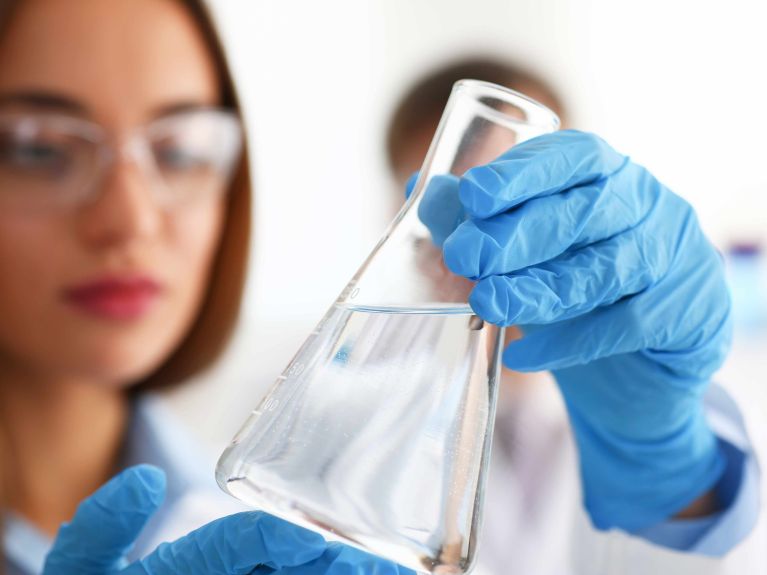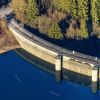“Painful challenges”
Climate change and drought pose a threat to our water resources. Germany’s water suppliers are being forced to adapt.

Mr Specht, in Germany we had one of the hottest summers on record, with the lowest rainfall, in 2022. Is our drinking water running low?
Nobody in Germany currently needs to fear that as a result of the drought they might turn on the tap tomorrow but no drinking water would come out. Local water suppliers see themselves as well equipped to deal with the situation. Nonetheless, long periods of drought do put a strain on our water resources, and there will be growing competition between the ways in which water is used. Though the effects of climate change may differ in terms of their severity from place to place, adaptation measures are still needed all over Germany.

To guarantee supply in the future, we must better protect our water resources from pollution than we have been doing hitherto so that they can be used as drinking water. When there are competing uses, the priority given to public water supply that is enshrined in law must be given greater consideration again. And we must accelerate investment: local water authorities invest eight billion euros per year in maintaining and developing their systems – continuously, at a high level, and ideally in climate resilience. However, for this to happen quickly, additional targeted funding and simpler planning and approval processes are necessary.
You recently talked about a dry future. You believe that some regions in Germany will have the same climatic conditions as the South of France in 20 years’ time. What needs to be done by then?
Many water suppliers have already been adapting their infrastructures in recent years to make them more climate resilient. Other preparations include sourcing a higher proportion of water from elsewhere, liaising with other water suppliers with a view to helping one another in emergencies, and appealing to customers to use water more sparingly. These ad hoc measures also contribute to the long-term goal of climate resilience: expanding infrastructures, networking and cooperation, and communicating with consumers are the top three measures for the future.
In the fight against climate change, Germany is working together with partners such as South Africa and Morocco. What can we learn from these countries?
Climate change entails major and indeed painful challenges for us worldwide. Engaging in expert exchange benefits us all, especially when it is with those who have long been feeling the effects. Exchange helps us look at our own situation more closely and learn from one another. Germany is a country with plentiful water resources by international standards. However, to ensure this remains the case, we must adapt our systems, even though we still have some time. We must not put obstacles in our own way and waste the time we have.
Germany is pushing forward with hydrogen production. Nine litres of water are needed for one kilo of hydrogen. How is that supposed to work?
As far as hydrogen production in Germany is concerned, we have no current need to fear any shortages in water supply. Before ramping up the production of hydrogen, however, we need to work out in advance, by planning ahead and consulting the water supplier in question, which specific water resources can be used for this purpose and how. As is the case with the establishment of many industrial facilities, the quantity and quality of the water supply will also be crucial factors in hydrogen production.
Karsten Specht is vice president of the German Association of Local Public Utilities (VKU) and managing director of the Oldenburg-East Frisian Water Association. In Germany, the VKU represents more than 1,500 local public utilities that are active in the areas of energy, water/waste water, waste management and telecommunications and employ around 282,000 people. Around 90 percent of all Germany’s inhabitants receive their drinking water from members of the association.
You would like to receive regular information about Germany? Subscribe here:


